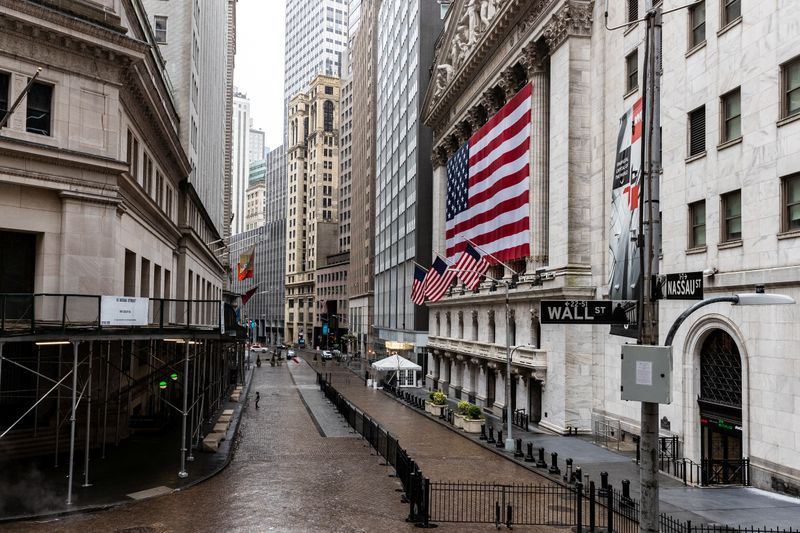By John McCrank
NEW YORK (Reuters) - The coronavirus pandemic has upended U.S. equities trading with unprecedented market volatility and forced bourses like the New York Stock Exchange to close their trading floors, raising questions about the need for such spaces.
The NYSE, which is owned by Intercontinental Exchange Inc (N:ICE), closed its stock and options trading floors in New York and San Francisco in March 23 after traders and an ICE employee tested positive for the virus. Rivals CME Group (O:CME), Cboe Global Markets Inc (Z:CBOE) and Nasdaq Inc (O:NDAQ) also closed their options and futures pits in Chicago and Philadelphia.
Despite the move to all-electronic trading, none of the exchange operators experienced any major technical glitches amid record volumes, and all of them reported first-quarter profits that beat analysts' expectations.
Cboe aims to reopen its options trading floor on June 1 after acknowledging that some customers were frustrated by the exchange's electronic trading tools and were unable to get the most risky and complex types of orders completed, it said on Friday.
At the same time, Chief Executive Ed Tilly said Cboe will soon roll out new electronic solutions that will replicate benefits of the floor for those more complex orders, prompting analysts to question the need to reopen the spaces at all.
"Our position has always been that when our customers tell us that there's no utility in the trading crowd, when brokers provide no service to their customers, the electronic solution will close the trading floor, not Cboe and not its management team," Tilly said.
The NYSE is the only U.S. exchange that still operates stock trading floors alongside electronic trading. It released a study on Thursday showing that floor traders dampen volatility by providing tighter bid-offer spreads, especially at the market close, saving investors millions of dollars a day.
While the floor distinguishes NYSE from its competitors, the closure has not led to a significant drop in market share, according to an analysis released Friday by industry trade group, the Securities Industry and Financial Markets Association.
"Only time will tell if investors feel the difference in execution of their trades with or without the human interaction on the floor," the study said.
The NYSE plans to reopen its San Francisco-based options floor on Monday. It has not given a date for the reopening of its iconic floors at 11 Wall Street.
CME, which runs the world's largest futures exchange, said on Wednesday it was unclear when it would reopen its trading floors, where about 10% of its business was done.
"We will not do anything irrational either way until we know exactly where health officials and government officials are going to come down as far as multiple people getting together in a single location," CEO Terry Duffy told analysts on a call.
The closure had little effect on trading activity, CME said.
"Participants can trade any strategy today as easily as they could prior to the closure of the floor," said Sean Tully, a senior managing director at the exchange.
